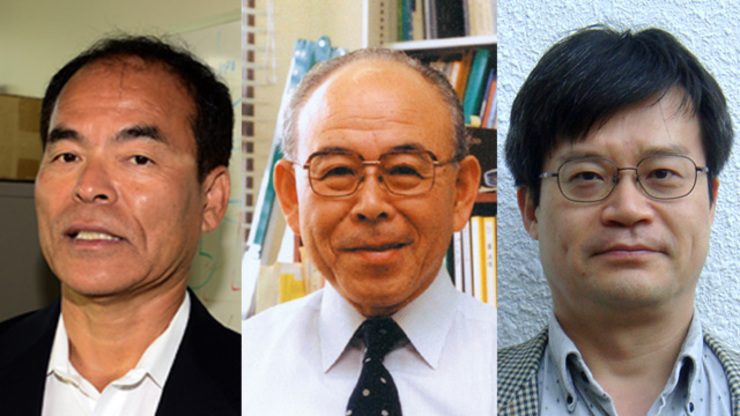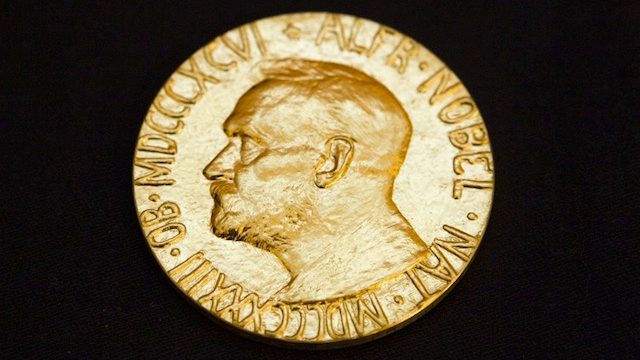SUMMARY
This is AI generated summarization, which may have errors. For context, always refer to the full article.

MANILA, Philippines (UPDATED) – A trio of Japan-born scientists were honored with this year’s Nobel Prize in Physics for their invention of blue light-emitting diode technology, which has paved the way for more energy-efficient lighting.
The names of scientists Isamu Akasaki, Hiroshi Amano, and Shuji Nakamura were announced by the Royal Swedish Academy of Sciences on Tuesday, October 7, in a live ceremony in Stockholm, Sweden.
“When Isamu Akasaki, Hiroshi Amano, and Shuji Nakamura produced bright blue light beams from their semi-conductors in the early 1990s, they triggered a fundamental transformation of lighting technology,” the Academy said in its announcement.
BREAKINGNEWS #Nobelprize2014 Physics to Isamu Akasaki, Hiroshi Amano @NagoyaUniv_info Shuji Nakamura @ucsantabarbara pic.twitter.com/hgbABOxUlm
— The Nobel Prize (@NobelPrize) October 7, 2014Akasaki and Amano are currently professors at the Nagoya University in Japan, while Nakamura, now an American citizen, is a professor at the University of California in Santa Barbara.
“It’s unbelievable,” Nakamura said via phone patch from his home in California – he was roused from his sleep early in the morning to get his reaction on the announcement.
‘Succeeded where everyone else failed’
The 3 researchers produced bright blue light beams from semiconductors in the early 1990s, triggering a fundamental transformation of lighting technology, according to the jury.

FULL COVERAGE: NOBEL SEASON 2014
Physiology/Medicine | Physics | Chemistry | Peace | Economic Sciences | Literature
Red and green diodes had been around for a long time but without blue light, white lamps could not be created.
The Nobel jury said that the trio “succeeded where everyone else failed,” and said their inventions were “revolutionary.”
“With the advent of LED lamps we now have more long-lasting and more efficient alternatives to older light sources,” the announcement said.
Their invention, the Academy said, “holds great promise for increasing the quality of life for over 1.5 billion people around the world who lack access to electricity grids: due to low power requirements it can be powered by cheap local solar power.”
“The invention of the blue LED is just 20 years old, but it has already contributed to create white light in an entirely new manner to the benefit of us all,” the jury added.
“Incandescent light bulbs lit the 20th century; the 21st century will be lit by LED lamps.”
The winners will share the prize sum of 8 million Swedish kronor ($1.1 million, 883,000 euros).
Last year the award went to Peter Higgs of Britain and Francois Englert of Belgium for the discovery of the “God particle”, the sub-atomic Higgs boson which gives mass to other elementary particles.
In line with tradition, the laureates will receive their prize at a formal ceremony in Stockholm on December 10, the anniversary of prize founder Alfred Nobel’s death in 1896. – with reports from Agence France-Presse in Stockholm, Sweden/Rappler.com
Add a comment
How does this make you feel?





There are no comments yet. Add your comment to start the conversation.